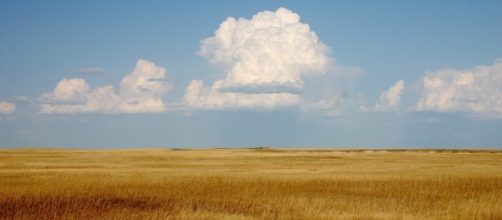Even before the 2008 presidential election, the Democratic party had begun focusing more of their attention on social groups, senior citizens, retirees, and immigration reform. Seeing rural America as a conservative stronghold because of large Christian Evangelical and Catholic populations, candidates began spending less time reaching out to farmers and voters in small towns across the United States. President Obama was the last Democrat in recent history who spent time getting to know voters in small towns, townships, and small cities. And as a result of the DNC and Democrats ignoring those voters, conservative Republicans, the Tea Party, and right wing religious candidates were able to easily turn states with large rural populations red.
Rural Voters in typical Democratic strongholds didn't know Clinton's stance on issues.
In an attempt to get an idea about factors that may have cost Hillary Clinton the presidency reporters talked to voters, including those living in rural areas across the U.S. In small cafes, on farms, and in small or mid-size communities, many of the residents reported that they didn't know anything about Hillary Clinton or what she stood for. About the only things they did know was that she was Pro-Choice, pro-immigration, anti-Trump and Bernie Sanders, and what she did as the Head of the State Department under President Obama. Moreover, countless small town businesses felt Democrats only cared about large urban areas and legislating social values, which oddly enough many disliked about Republicans as well.
While on the campaign trail, Donald Trump played right into rural voters hands by promising lower taxes, protecting farm income, and making trade agreements fairer.
Conservatives get the rural vote because Democrats don't reach out to small town America
Smaller towns had been dying from a lack of income and jobs for twenty-five years, which had driven their young people to the large metropolis. Family farms that had been passed down for generations struggled with the high cost of seed, farm equipment, insurance, and livestock until they were no longer able to keep their heads above water. For many, property taxes and high sales taxes contributed to their forced sellout to foreign entities and huge American agricultural conglomerates.
A number of corporate farms then polluted the fields and streams with nitrates, and some of the contaminated lands can never be reclaimed. These were some of the environmental and economic concerns that Democrats failed to respond to. Instead, it was conservative and tea party candidates who went on speaking tours, visited individual farms and ranches to see firsthand what farmers faced. And republicans held town hall meetings in schools, churches, and other places where rural voters congregated.
Kansas Democrat James Thompson told Democrats they must reach out to 'All' voters
When Kansas Democrat James Thompson stepped into the political arena as a candidate for the 4th District U.S. Congressional Seat vacated by (R) Mike Pompeo the new Director of the CIA, he ran on a Populist message that embraced 'all' Kansans.
With the exception of Wichita, Kansas' largest city, most of the district encompasses small towns and rural areas in adjacent counties, and counties farther west and east. Thompson reached out to those living in the outlying areas as well in his Congressional run. Volunteers, Thompson's wife, and others spread out across the district to connect with rural voters where they congregated and by phone. Even the Republican party was surprised at the number of rural voters who backed Thompson. With no help from the party until it was too late, the Democrat still only lost to his Republican opponent by 7 percentage points, the smallest loss in KS political history. In his concession speech, James Thompson drew attention to his rural support and warned the party that they needed to start reaching out to those voters.


